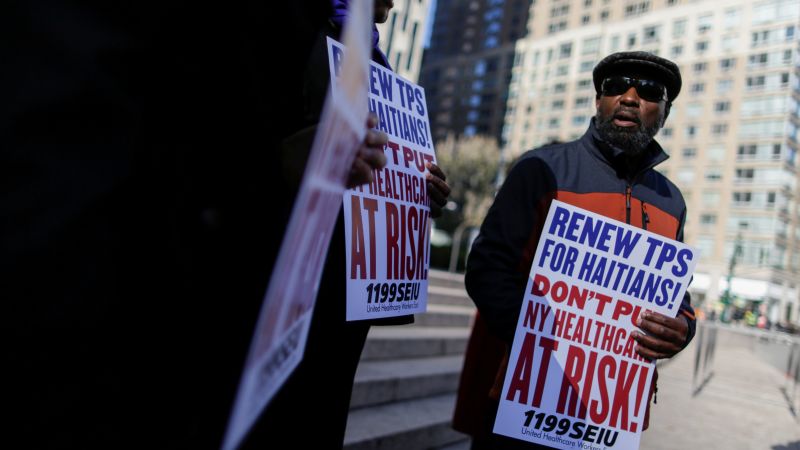A federal judge in Brooklyn has blocked the Trump administration’s attempt to prematurely end the temporary protected status (TPS) for Haitian migrants. The decision, handed down by U.S. District Judge Brian Cogan, found that the Department of Homeland Security (DHS) violated legal procedures in its effort to revoke deportation protections and work permits for over half a million individuals.
The ruling follows DHS Secretary Kristi Noem’s controversial move to rescind the 18-month extension of Haiti’s TPS designation, initially granted by former President Joe Biden. Originally set to last until February 3, 2026, the Trump administration sought to curtail this period, first proposing a new end date of August 3, then adjusting it to September 2 just last week.
Legal Challenges and Judicial Findings
Judge Cogan’s decision emphasized that Secretary Noem did not adhere to the timeline and procedures mandated by Congress, which require a thorough review of current conditions in Haiti before terminating TPS. In his ruling, Cogan stated, “Secretary Noem does not have statutory or inherent authority to partially vacate a country’s TPS designation.” He further noted that the plaintiffs faced “actual and imminent” injuries that could not be resolved through monetary compensation.
The lawsuit, initiated in March by nine Haitian TPS holders alongside advocacy groups such as the Haitian Evangelical Clergy Association and Service Employees International Union 32BJ, argued that the abrupt policy change disrupted lives and forced families to brace for deportation much sooner than anticipated. Cogan, appointed by George W. Bush, indicated that the plaintiffs are likely to succeed on the merits of their case.
Background and Implications
The TPS program, established by Congress in 1990, provides temporary legal status to nationals from countries experiencing armed conflict, environmental disasters, or other extraordinary conditions. Haiti’s TPS designation was initially granted following the devastating earthquake in 2010, which left the nation struggling to recover.
This recent judicial decision underscores the ongoing debate over immigration policy in the United States. Critics of the Trump administration’s approach argue that it disregards humanitarian concerns and legal frameworks designed to protect vulnerable populations. Meanwhile, supporters claim that the administration is prioritizing national security and immigration reform.
Expert Opinions and Future Outlook
Immigration experts have weighed in on the ruling, highlighting its significance for Haitian migrants and the broader TPS community. “This decision reaffirms the importance of adhering to established legal procedures,” said Maria Rodriguez, director of the Florida Immigrant Coalition. “It also sends a clear message that abrupt policy changes without due process will not stand.”
While the ruling temporarily maintains Haiti’s TPS designation until at least February 2026, it does not prevent DHS from terminating the status in the future, provided statutory requirements are met. A related case, Haitian Americans United Inc. v. Trump, is concurrently being litigated in federal court in Massachusetts, presenting similar legal arguments.
Looking Ahead
The implications of this ruling extend beyond the immediate relief for Haitian migrants. It sets a precedent for how TPS designations are handled and challenges the executive branch’s authority to unilaterally alter immigration policies. As the legal battles continue, the outcome could shape future administrations’ approach to TPS and similar immigration programs.
For now, Haitian migrants and their advocates celebrate a significant legal victory, while remaining vigilant as the Trump administration considers its next steps. The broader immigration debate remains a contentious issue, with policymakers and stakeholders closely monitoring developments in this and related cases.
